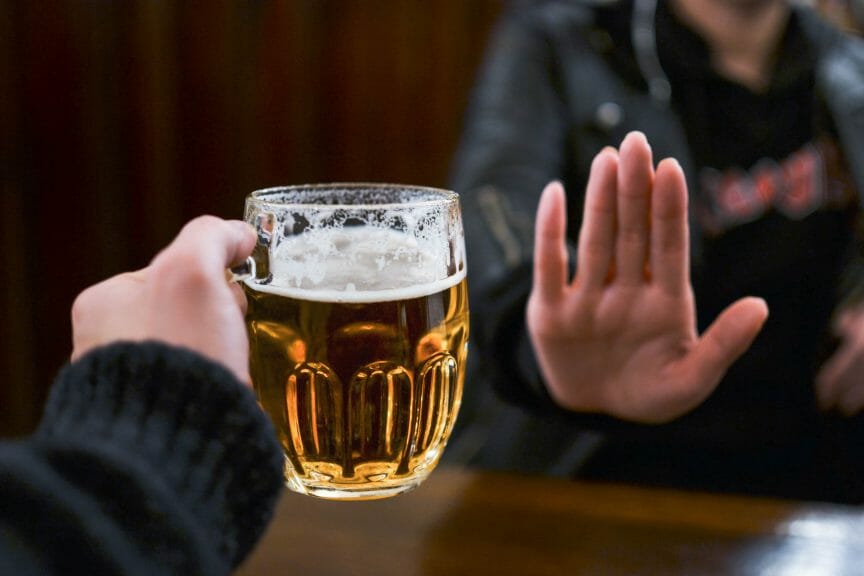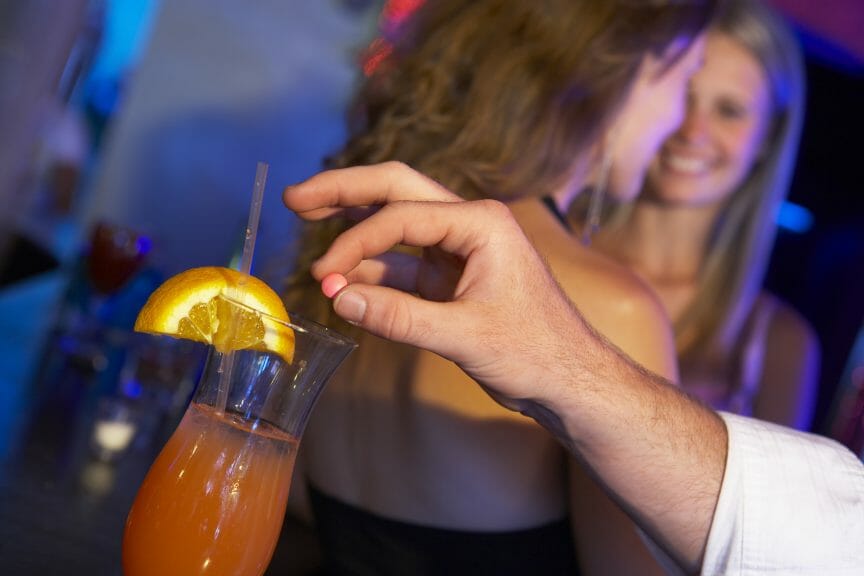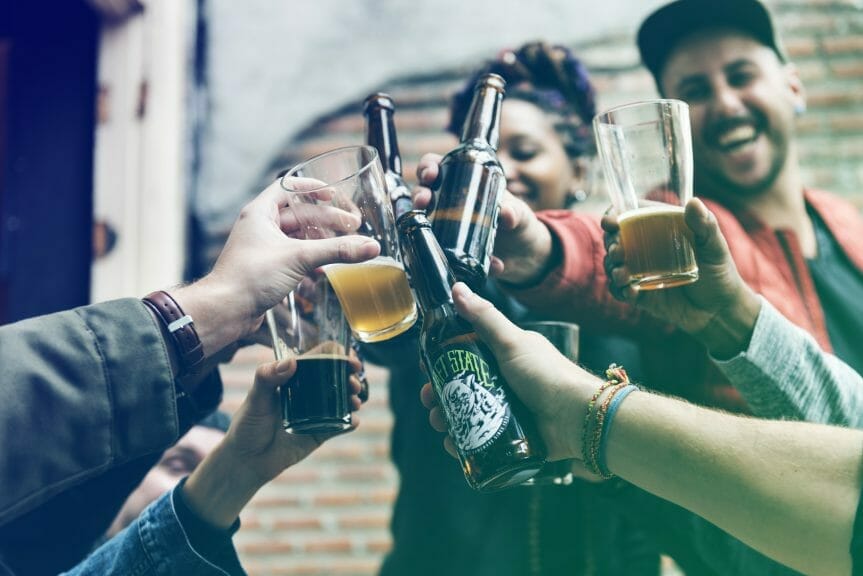When you picture an alcoholic, someone whose life has been substantially, detrimentally, and perhaps irreversibly impacted by alcohol, you probably don’t picture a vibrant-looking twenty-year-old university student.
However, is alcoholism the best-kept secret of British universities?
Early Starts
In the UK, we are given extremely early access to alcohol. Many of us can relate to the underage pub scenes in The Inbetweeners or remember “drinking cheap spirits straight” (as Ed Sheeran sings about in Castle on the Hill). Throwing up in fields, getting your older sibling to buy you alcohol, and having messy house parties, could all be considered rites of passage in British adolescence.
All fun and games, right? Though many of us are binge drinking at an age where our brain is crucially developing and during years that are perhaps the most definitive in determining the direction of our life.
In the US, with the legal drinking age being 21, students’ access to alcohol is reduced, whereas in the UK, with the age being 18, most people spend their entire Uni careers being legally able to drink. So, many are trying to figure out their boundaries in often unsafe and peer-pressuring environments.
The Infamous Freshers Week
When many of us move to university, drinking behaviors are amplified without the reins of parental supervision. Moving into accommodation with fellow students; all untethered for the first time, effectively is like a group of naughty children without a babysitter. Alcohol soon becomes the cornerstone of university socializing – with club nights, flat parties and society socials filling up the calendar.
Prepping for a night out at university often involves incidents such as downing a bottle of the nearest local shop’s own brand of vodka or indulging in a lethal communal punch. Mixing different kinds of alcohol, which is generally advised against, is extremely common and often the culprit of putting people in vulnerable states.
Entertainment venues, including the universities’ own student unions, profit from the naïveté of freshers, knowing that many will choose to drain their student loans on excessive drink deals and club events. Examples are making a bulk drink deal and encouraging people to buy alcohol in large quantities at a time.
“I didn’t realize until I had to go on antibiotics for two weeks and couldn’t drink, how big of a part alcohol played in the day-to-day life of the first year. Getting drunk multiple times weekly is the base expectation.”
-Female student, 21
Peer Pressure
University is described as one of the most memorable times in a person’s life. And while the academic side of things could certainly be hard to forget (long stressful periods in the library etc), it is more likely that the social side of things is what stays with you long after your hair has turned grey. That’s because university is just as much a social as an academic experience.
I remember when I came to look around my current university. As I toured a shabby hall of residence, I saw rows of empty glass bottles lining the windowsills. Brands of various spirits and wines, all drained to the last drop. It was like a competitive display of who could fill their windowsill the fastest.
Other things on display in the accommodation kitchens were “chunder” or “shag charts,” complete with revealing tallies for each resident. Very visible documentation chronicling the students’ drinking and sexual escapades. Many may view these things as harmless fun, yet there is an underlying toxicity in viewing these as targets for freshers to fulfill.
If drinking yourself into oblivion to the point of making yourself sick is what gains social acceptance, is that a solid foundation for friendship? Furthermore, this behavior encourages people to treat sexual partners as checklist items to brag about, turning it into a competitive sport.
Sports Societies
Sports societies have a certain amount of cachet and are the foundation of many people’s social lives whilst at uni. Many join a society in the hopes of making friends, finding their crew and a sense of belonging. However, sports societies often promote a culture of toxic peer pressure.
Freshers’ initiation ceremonies range from questionable to downright illegal and dangerous. Think of eating cat food on a good day and drinking someone else’s bodily fluids on a bad one. I have known several peers who have forgone joining a society due to fear of the escapades.
Once people are indoctrinated, things tend to improve…slightly. Weekly socials can see people downing several bottles of wine or a crate of beer each, with further drinking penalties added. Other common social activities include pub golf, bottomless brunch and basically any event that gives students an excuse to day drink. Many will have heard of the infamous 17-stop Otley run in Leeds, which in recent years led to legal measures being introduced to tackle the antisocial behavior it resulted in.
Society’s binge drinking problem provokes the chicken and egg question. Is it the societies corrupting the university atmosphere? Or are the unis not being held accountable for the insidious cultures that their societies often promote? Society behavior has been known to become lethal on university territory, yet even tragic events haven’t triggered a widespread change of behaviors. What happens when fun isn’t so fun anymore?
We talked to a recent graduate who had experienced the intensity of rugby socials first-hand during his degree, including through being a member of the committee.
“As a fresher, there’s definitely peer pressure, but as you gain more status in a society, there is less pressure”.
Male student, 22
Is there an intrinsic link between toxic masculinity and drinking pressure? The interviewee saw the culture as bittersweet, both acknowledging that alcohol plays a crucial part in breaking the ice, yet admitting it is often taken too far. The freshers seem to bear the brunt of things, needing to earn the respect of the older members. He does believe that the sports culture is naturally changing, becoming less rough and toxically masculine. He insisted that you “Can always say no” before admitting you might get called a few names if you do… It’s “moving in the right direction…You never used to be able to say no, but you can now”. Yet if you say no to the drink, are you risking saying no to friendship as well?

Binge Drinking and Clubbing Culture
The recommended limit to drink is no more than 14 units a week on a regular basis (Chief Medical Officers’ guidelines), with six drinks a week being advised.
British university students are far surpassing this amount every week. So, by official regulations, many of us are alcoholics. Yet this is not really flagged up as a problem. Especially because so many clubs and bars depend on students’ wild party antics to turn a profit. Universities and other establishments encourage excessive drinking habits by promoting deals like 4 VK’s for a tenner.
It has been said that alcohol is like a “push-up bra for your personality”, in that it often helps lower our inhibitions – for better or worse. Many students, alone in a new city, depend on alcohol to get them through the initial terror of making friends and finding their people.
It makes sense that we feel the need for a little help. Being without your family, cast into a dormitory-like environment, with mounting financial pressures and academic stress. There is a “work hard, play hard mentality” often associated with some of the most stressful degrees, such as Medicine or Law. Students frequently turn to drink and drugs to relieve stress yet aren’t being recognized as addicts even when figures prove this is the case.
“Examples of peer pressure include being fined for turning up late or being dubbed dick of the day in sports teams. This usually involves downing a pint in front of the team. It is very difficult if not impossible to say no to this.
Boat races are also common in sports teams, with participation mandatory and copious amounts of alcohol drunk.”
-Male student, 20
Danger: Spiking and Blackouts
One of the major issues with drinking at British universities has been the culture of “spiking” and sexual assault. Many establishments have started introducing measures to increase safety. During a period of peak spiking in Autumn 21’, bag searching was widely introduced, yet why isn’t this the case all the time?
The universities have made a few more attempts to increase safety for their students. Most student bars have introduced lids for drinks as a starting point for change. There are services like taxi schemes that allow people with no funds to get home safely and pay for their taxi later. Yet, the reality is there are also flaws with these systems. A friend of mine tried to help a very drunk girl into one of these university taxi schemes, only to have her refused entry due to the driver’s fear of her vomiting. This sort of behavior puts young people in hugely vulnerable positions, especially if there is nobody around to help.
In fresher’s week, my friends and I stumbled across a fellow wide-eyed fresher in a bit of a state, to say the least. Luckily, he had a few friends to help him home. What happens to the people who don’t?
There are a few unofficial measures we can all take, such as: stick with your friends, sip water, limit mixing and don’t drink on an empty stomach.
The hardest thing to avoid? Peer pressure. The other thing we have no real control over, is being spiked. Yet never picking up a deserted glass is a good step.

What Can Be Done?
Studies have shown the adverse impact of alcohol on levels of anxiety and depression. The student years are already bewildering and difficult; adding alcohol to the mix can trigger a slew of mental health problems, as well as low-functioning brain power in the classroom. With the amount we are paying to attend university, it seems a shame to spend most of our lectures resting our heads on the desk.
Part of the problem with tackling this culture is the lack of sociable sober activities, as well as a stigma around not drinking. The biggest irony is that sports societies are the biggest perpetrators of promoting unhealthy drinking habits while trying to uphold athletic excellence. It can be a tough balancing act that leaves many students exhausted and overwhelmed.
One thing that could significantly help the alcohol situation would be to introduce alternative venues for getting to know each other. Sober nights in the SU could be a thing, as well as hosting a larger variety of non-clubbing events. The truth is that capitalism is most likely stopping establishments from trying to downplay the more limited role alcohol should play in student life.
“It’s taken me 3 years of uni to learn tricks of avoiding drinking at socials. Sometimes I would avoid going because I didn’t want to drink and was worried about how that would go down. Knowing there are ways around it i.e., drinking squash (to make it look like you’re drinking) is important.”
Female student, 22
A Positive Relationship with Alcohol?
It is hard to imagine people going on to develop a positive long-term relationship with alcohol after spewing their guts out in the Students Union every week. For many, there will be a drink they cannot stomach again. If we’re being optimistic, could it be possible to move forward and drastically change your relationship with alcohol from binge drinking to classy sipping?
Sobriety is seeming increasingly appealing, though perhaps going teetotal is not realistic for many students. Then instead, we should collectively work towards a less alcohol dominated student culture.
Know your limits. Be Safe. Don’t be afraid to speak out.
Maybe we should seek to change the way the university social system is structured: normalize sobriety, decrease peer pressure and avoid tragedies.















D
October 10, 2023 at 4:14 pm
Increadibly revealing article. Drinking culture is hugely problematic but often goes uncriticised. I’ll propose some ideas for sober socials to my uni club. Sounds like a great idea!
Jessica Le Roux
November 4, 2023 at 10:31 am
A well-written, witty and easy to digest article. I especially enjoyed the quotes from real people, adding more depth and relatability to this article. I am now already reflecting back on my uni years and spotting the red drinking flags that I experienced – thanks for the insights!